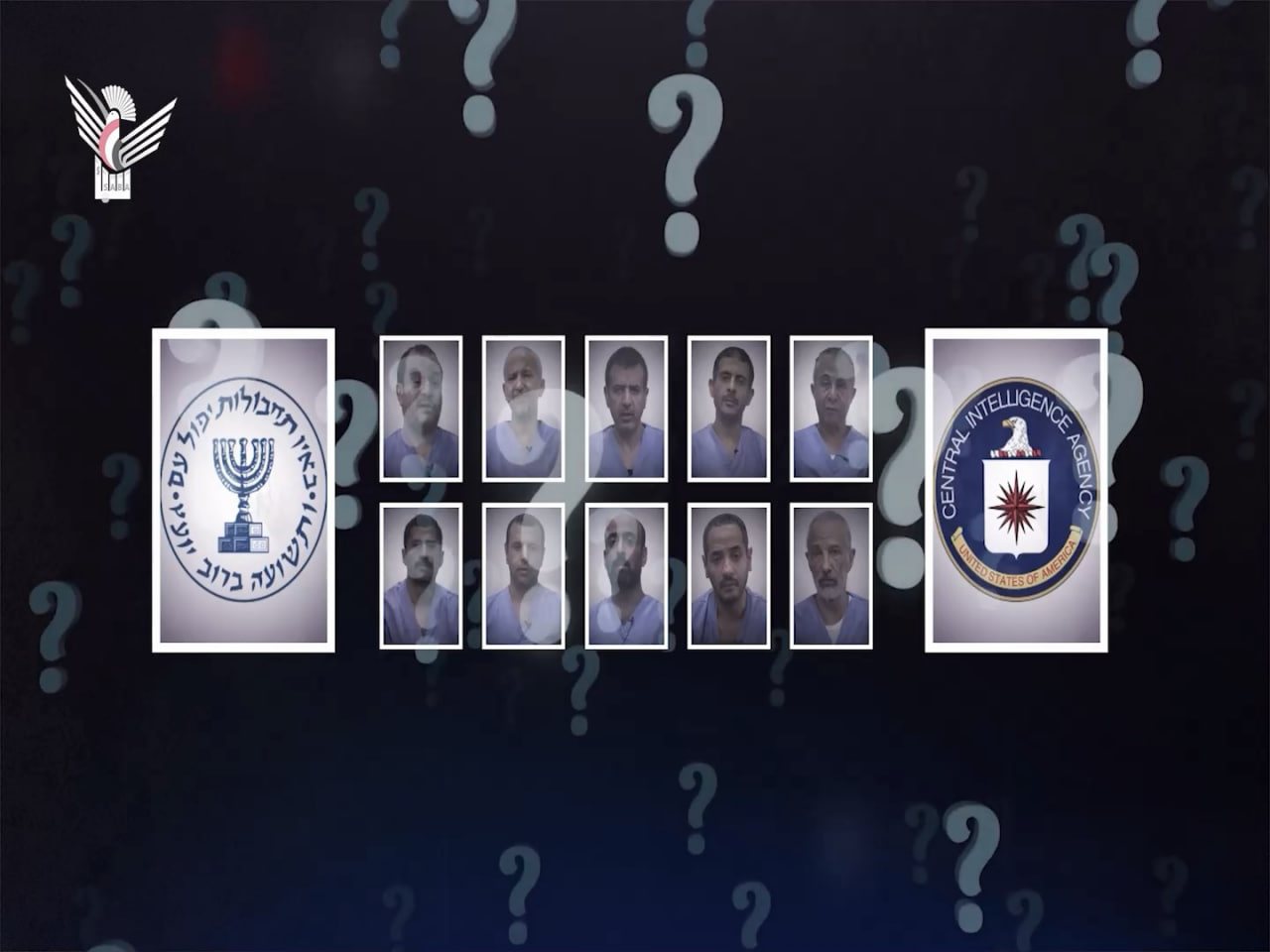
SANA'A June 26. 2024 (Saba) - The confessions of the members of the US-Israeli spy cell represented a living witness to the dangers of soft war used by enemies to harm Muslim peoples and societies, especially the Yemeni people.
According to the confessions of the cell members published by the security services, the American enemy used soft war to attract them and recruit them to work for it and the Zionist enemy.
The spy Bassam Ahmed Mohammed Al-Mardahi admitted that America relies on sexual blackmail to attract spies and force them to work for it. He explained that he was recruited to work in the FBI in 2012, by sexually trapping him and documenting him after being sent to attend a training workshop in the German city of Frankfurt.
He revealed that the American side focuses on the weaknesses of all those who recruit them to work for him, by studying the person to be recruited and searching for gaps through which he can be controlled, such as his tendencies, desires and needs.
The confessions of the cell members constituted living evidence of the impact of the soft war on young people and its damage and dangers to the homeland and society, and confirmed the correctness of the vision of the revolutionary leadership and the Supreme Political Council and its great focus on strengthening the faith identity in the hearts of young people and immunizing them by all possible means from all forms, means and methods of soft war and confronting the conspiracies of enemies.
The Quranic project founded by the martyr leader Sayyid Hussein Badr al-Din al-Houthi represented the basic starting point for consolidating the faith identity and Quranic culture among young people, youth and society as a whole to immunize them from all forms of invasion and systematic targeting of Islamic societies and desperate Western attempts to strip these societies of their Islamic values and principles that preserve their existence and protect them from the dangers of foreign Western cultures.
In many of his speeches, the Leader of the Revolution, Abdul Malik bin Badr al-Din al-Houthi, stresses the importance of societal awareness and the armament of faith identity to confront misleading ideas and soft war methods and tools used by the Western enemy to weaken Muslim peoples and drag them into the stage of dependence to serve him and implement his agendas.
Strengthening the faith identity in the conscience of Yemenis, especially in light of the soft war through which the enemies seek to remove the nation from its religious identity and moral values, is one of the most important issues that the Leader of the Revolution and before him the martyr leader focus on with the aim of enhancing societal awareness of the dangers of soft war and thwarting the plans of the enemies in this aspect.
In one of his speeches, the leader described the reality and life of the infidel West as worse than the lives of animals, and that it represents a terrible and heinous situation, pointing out that the Western enemy targets young people by all means and methods within the framework of a soft war at the intellectual and cultural levels, concepts, perceptions and beliefs, with diverse capabilities and means unprecedented in human history, including modern technological means such as satellite channels and the Internet, as well as through organizations that play a role in this aspect.
According to the nation's scholars, the faith identity is the summary of the great fruit of the Book of God Almighty and the Prophet's guidance, because of its positive impact on building and refining the human soul, and upgrading humanity to moral and mental perfection, spiritual intelligence and psychological purity that qualifies man for true attachment to God Almighty and thus enables man to confront any misleading ideas to confront any means of soft war.
Observers believe that the soft war is one of the enemy's paths that he resorted to to try to target Yemen intellectually and culturally, as it is the most dangerous and least expensive type of war, and has catastrophic effects on Islamic societies as it targets their faith and national identity and social fabric.
E.M
resource : Saba